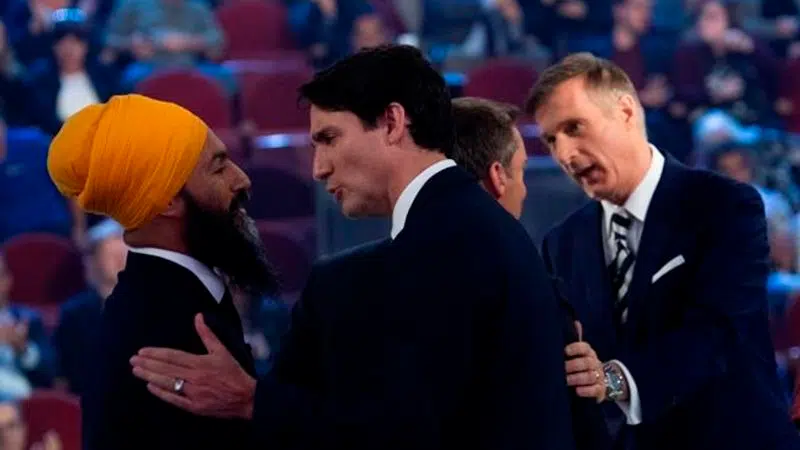
Party leaders dish baloney in French-language debate
OTTAWA — The six federal party leaders used the last televised debate of the campaign Thursday to make their pitches to voters. Along the way, they each made assertions with varying degrees of accuracy.
The Canadian Press Baloney Meter, which is a dispassionate examination of political statements culminating in a ranking of accuracy on a scale of “no baloney” to “full of baloney,” has weighed one claim from each leader.
Liberal Leader Justin Trudeau
“We’re already doing more than any other government has done in the history of this country to protect the environment and to fight climate change.”
